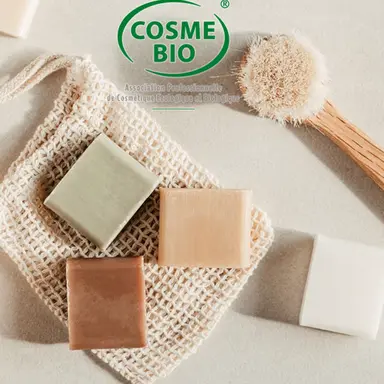
Solid cleansing products have taken over the hygiene and beauty shelves in force. This new formulation seems to be ideal for “Zero Waste” enthusiasts. However, Cosméebio, the French professional association dedicated to natural and organic cosmetics, denounces an unfinished ecological approach, putting health and the environment at risk!
Cosmébio’s argument is that beyond the format of the cosmetic, a product composition that includes certain surfactants, such as sodium cocoyl isethionate (SCI), goes against a responsible approach.
This surfactant derived from coconut oil is very common in the solid cosmetics market because it allows the product to foam well. It is often marketed as a “green” ingredient despite its prohibition in natural and organic certification, due to its manufacturing process which uses ethoxylation.
Cosmébio underlines “the dangers of ethylene oxide for humans: a highly irritating and corrosive carcinogen for the skin and eyes. It therefore presents a direct risk for the worker in contact with this substance”.
The association adds that ethoxylation is a heavy process carried out under extreme temperature and pressure conditions. This process is also very polluting: it involves ethylene oxide, which is highly reactive and toxic.
Its toxicity is indirectly found in nature if good use practices are not respected. Moreover, the ethoxylated derivatives obtained can contaminate the environment with the presence of toxic impurities (1,4-dioxane, ethylene oxide, etc.) for micro-organisms and fish.
“Even if the final ingredient can be considered natural and gentle on the planet, what is the point if all the harm …













